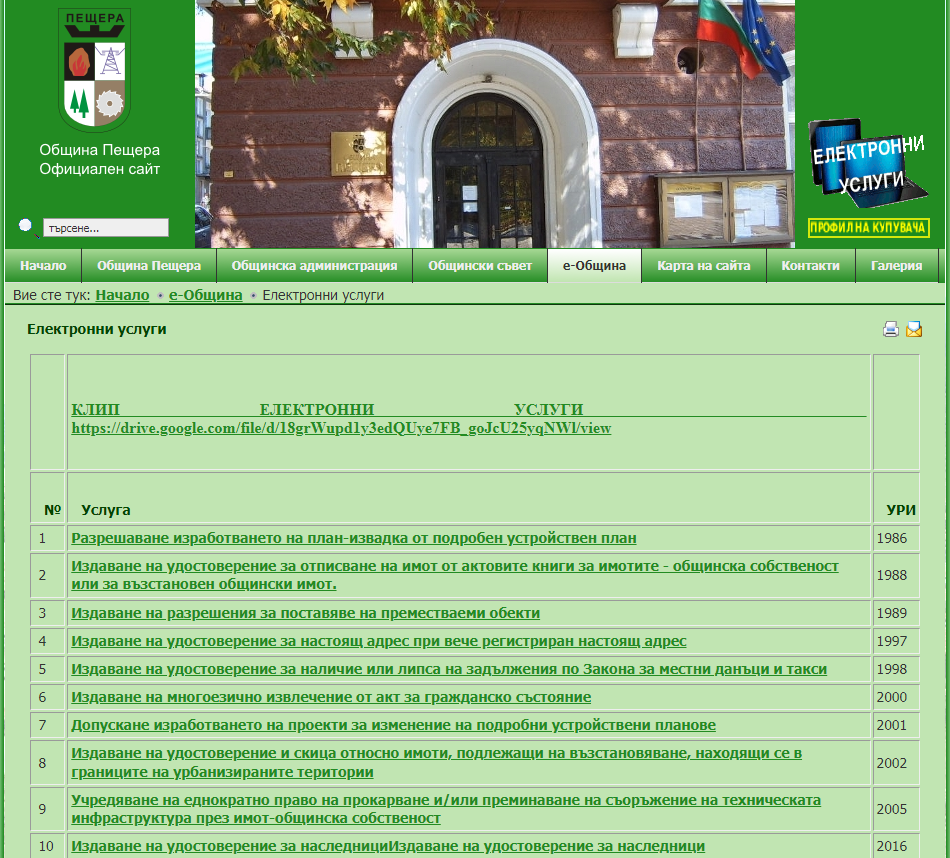by Georgi Simeonov – Municipality of Peshtera
Bulgaria is seriously lagging behind with the introduction of e-identity and, accordingly, in the creation of effective e-government. Although, there is already a good volume of gained experience at EU level, Bulgaria still needs to improve its e-governance system, increase security and build public confidence in e-services.
Bulgarian roadmap for digital identification
2016 – The Digital Identification Act and a Regulation for its implementation were adopted. At the end of 2016, on the basis of the newly adopted law, a procedure for establishing a national digital identification scheme was launched, on the basis of which persons over 14 years of age will be able to obtain a digital/electronic Identity (eID). However, due to some bureaucratic reasons, this project has not been implemented to date.
2017 – The Regulation for the Implementation of the Digital Identification Act introduced requirements for the holders of eID, which allows for the provision of useful functionalities. Bulgarian Personal Documents Act stipulates that the identity card may also serve as a digital mean of an eID certificate (unless the person explicitly refuses to do so). This means that when issuing an ID card, an digital identity certificate will be issued, which will be incorporated into the card. This possibility is envisaged in 2017, but after several delays in its entry into force, it is expected to happen in 2022.
2023 – Expected year of introduction of e-Governance in Bulgaria. This will allow more citizens to access and take advantage of different digital services offered by public administrations in Bulgaria at local, regional and national level.
Current situation in Peshtera
The launching of the digital services system in Peshtera coincided with the start of IMPULSE project, i.e. the beginning of 2021. The municipality is currently offering more than 70 different public digital services to its citizens. Currently the only way to use this e-system by citizens is by having the so called “digital signature”, which represents a personal eID certificate. This digital signature/certificate is used for identification purposes. However, the main barrier is that the digital certificate is not for free and a subscription fee must be paid each year. Therefore, quite a few people own such an eID solution. This is also the case with most of the Bulgarian municipalities, which are using the digital platform for e-services provided by the Bulgarian Government – only the use of the so called “digital signature” certificate is allowed for identification purposes.
Peshtera case study
The municipality identified two major barriers before the larger deployment of digital services to its citizens:
- Low number of citizens who have eID (digital signature): In Bulgaria, this is the only way at the moment, to take advantage of public digital services. Without it, citizens can only use “over-the-counter” services. By participating in IMPULSE, the municipality will test new methods for e-identification, which could be adapted and utilised by the municipality on the future provision of e-services. This will enable access to digital services of more citizens of Peshtera municipality.
- Low confidence in e-services: People are afraid of leakage of personal data. Citizens are still afraid to use digital services, and especially public ones, because of a recent leakage of personal data by a large public administration. IMPULSE solution will be exploited also as a mean to regain confidence among our citizens.
Therefore, disruptive technologies as well as the IMPULSE approach as a whole will be assessed for their incorporation into the digital services platform of Peshtera municipality. The concrete service selected for IMPULSE to operate in the pilot, among the 70 civil services provided to municipal citizens, is the “Application for a certificate of legal permanent address”, due to its frequent use and close relation to identity management. The certificate for address registration is an important document, because every citizen who wants to renew or obtain a new ID card, must provide first a document with his/her address registration, and then apply for an ID card. A separate test section will be developed on municipal website, which will be dedicated to IMPULSE solution and citizens will be invited to test the new methods of e-identification and express their feedback.

Besides, Peshtera will take advantage of its participation in another EU project (DEFeND), which aims to ensure compliance with the General Data Protection Regulation (GDPR) and provide GDPR governance and guidance, in order to build synergies between both projects, so the IMPULSE solution tested on this innovative GDPR Platform will allow the validation of an innovative and holistic blockchain-based GDPR-compliant eID management solution with improved security and stability
